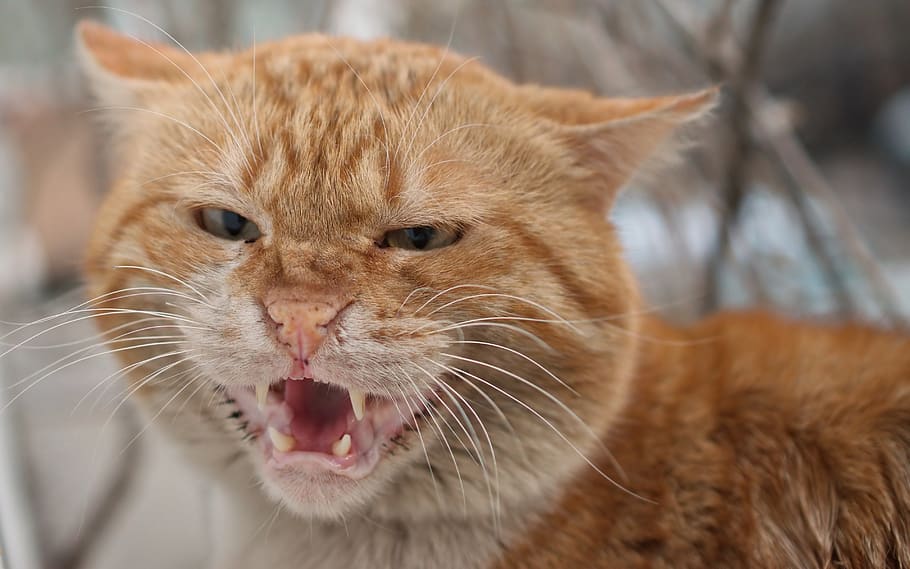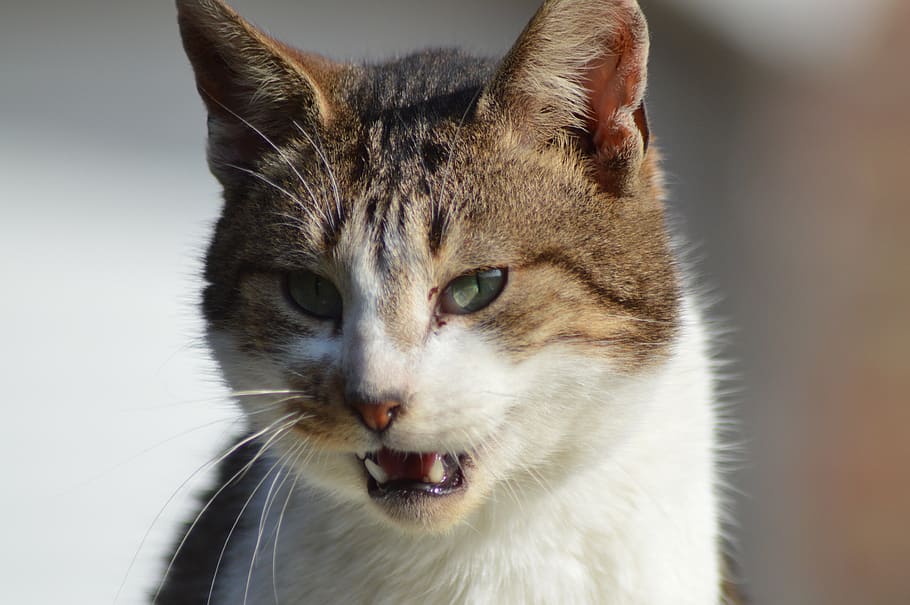My Cat Is Spitting: What to Do?
Cats communicate through gestures and vocalizations. If you can spot specific signals, you can determine whether it’s a behavioral expression or a sign of a physiological problem. Thus, a cat that spits up can express several things.
Let’s see closer below.
Different meanings of a spitting cat
When a cat spits or fires in the direction of another animal or to the attention of a human, it is part of the behavior to watch. Here are some clues:
He has been frightened, surprised by a noise, an animal, or a human, and expresses his surprise by spitting, because he has felt attacked.
It fires at another animal. In this case, he is probably trying to defend his territory against this intruder. This situation can occur outdoors and at home if you adopt a new animal, for example.
When you pass near or try to pet him, he spits in your direction. Beware! Your cat clearly tells you there is a problem; don’t try to pick him up or force contact. Avoid him at first and take the time to assess the situation.
In the latter case, there are two scenarios:
He has had this attitude since he was a kitty, which never calmed down. Your kitten must be very anxious and has perhaps undergone a trauma, and it does not feel safe in the environment where it evolves. This is a behavioral problem.
He’s never done this before, and it’s clearly not normal from his usual behavior. You’ll want to watch for signs of pain or other symptoms.
Good to know: Generally speaking, a cat that spits expresses fear, aggression, anger, discomfort, or pain. It would be best not to react by shouting, grabbing the cat suddenly, or scaring it, as this will only negatively reinforce the problem. Always act gently and calmly.
Spitting cat: alarming symptoms

In addition to growling or spitting, your cat avoids contact, wants to hide, and withdraws into himself. Here are the symptoms you can observe in addition:
- Look at his pupils, are they dilated?
- Is he panting or having trouble breathing?
- Does he have jerky head movements?
- Does he start vomiting white foam?
- Do you see blood in the spit-up?
All of these symptoms should alarm you and may represent a veterinary emergency. Make sure you write down everything you observe to describe everything accurately. The veterinarian will try to find out if your cat has been poisoned or if it has had a shock and will act accordingly.
On the other hand, if the growling, hollering, and spitting are part of your cat’s usual behavior, it is a fundamental problem, poor socialization or anxiety that can be treated with, for example, synthetic pheromones (which help the cat to de-stress) or with medication prescribed by your veterinarian.
Good to know: sometimes it’s enough to see a behaviorist veterinarian who will give you the keys to restore the well-being of your little companion. Think about it!
Read more:
- Understanding Cat Language: Meowing and Purring;
- My Cat Meows All the Time: What to Do;
- Why Your Cat is Meowing at Night;
- How to Decipher Your Cat’s Language;
- Relationships and Understanding Between Cats and Dogs;
- Cat and Baby: Tips for a Successful Cohabitation;
- 4 Ways to Keep Cats Away From Your Garden;
- Can Your Cat Cohabitate With Others;
- Understanding the Notion of Territory for Cats;
- Is the Cat Intelligent;
- How to Make a Cat More Cuddly?
Hope this post and the above links will help you better understand your cat. Remember to leave a few words in the comments below.
